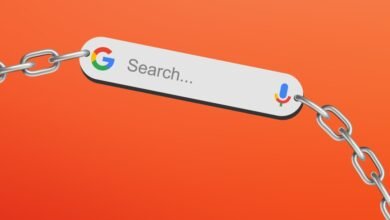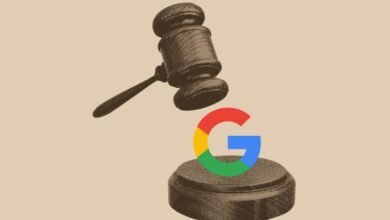Judge Rules Google Can Keep Chrome in Antitrust Case

▼ Summary
– Judge Mehta ruled that Google does not have to sell its Chrome browser despite being found to have an illegal monopoly in online search.
– Google is allowed to continue paying distribution partners for preloading its search or AI products but must share some search data with rivals and avoid exclusive deals.
– This ruling is the most significant antitrust remedies decision against a tech giant in about 25 years, though Google can still appeal the underlying monopolist finding.
– The judge declined more aggressive DOJ proposals, citing risks to product quality and ecosystem revenue, while opting for narrower data-sharing requirements.
– Critics, including DuckDuckGo and the American Economic Liberties Project, argue the remedies are insufficient and will not effectively restore competition.
A federal judge has ruled that Google will not be required to divest its Chrome browser as part of the remedy for its illegal search monopoly, marking a pivotal moment in one of the most significant antitrust cases in decades. Judge Amit Mehta of the DC District Court issued the decision, allowing the tech giant to retain ownership of Chrome while imposing several other measures intended to foster greater competition in the online search market.
The court rejected several of the Justice Department’s more aggressive proposals, including the sale of Chrome and a ban on payments to distribution partners. Instead, the judge ordered Google to share valuable search data with competitors and prohibited the company from entering into exclusive distribution agreements that could lock out rivals. These measures are designed to help other search providers gain traction without dismantling Google’s core operations.
This ruling represents the most substantial antitrust action against a major technology firm since the Microsoft case a quarter-century ago. Despite its significance, the legal process is far from over. Google now has the opportunity to appeal the underlying monopolization verdict, a move that could prolong the case for years and potentially bring it before the Supreme Court.
In response to the decision, Google expressed reservations about how the ordered changes might affect user privacy and product quality. Lee-Anne Mulholland, the company’s vice president of regulatory affairs, stated that Google is carefully reviewing the ruling. On the other side, the DOJ struck a cautiously optimistic tone. Gail Slater, the head of the antitrust division, described the outcome as a victory but indicated that the department is still evaluating whether to seek further remedies through appeal.
During the remedies phase of the trial, the Justice Department had pushed for more sweeping changes, arguing that Google’s control over Chrome, a major gateway to search, allowed it to unfairly dominate the market. They also advocated for forced data sharing to help competitors improve their own search technologies. Google countered that such measures would harm innovation, undermine user privacy, and disrupt the open-source ecosystem around its Chromium browser engine.
Judge Mehta’s 230-page opinion detailed his reasoning, noting that while Chrome contributes to Google’s dominance, a forced sale would be impractical and counterproductive. He emphasized that Chrome is deeply integrated with Google’s infrastructure and not operated as a standalone business. Divesting it, he concluded, would likely lead to a degraded product and reduced consumer satisfaction.
The judge also declined to prohibit Google from paying companies like Apple and Mozilla to set its search engine as the default, reasoning that such a ban could harm those partners by cutting off a significant revenue stream. At the same time, he acknowledged that allowing these payments to continue reinforced the need for other corrective measures, such as data sharing.
Under the ordered remedy, qualified competitors will be permitted to purchase a one-time snapshot of Google’s search data at marginal cost. This information is intended to help them improve their own crawling and indexing capabilities. However, the scope of this data sharing is narrower than what the DOJ had requested, and it will occur only once rather than on an ongoing basis.
Some critics of the ruling were quick to voice their disappointment. Gabriel Weinberg, CEO of DuckDuckGo, testified during the trial and later stated that the remedies would be ineffective at curbing Google’s anti-competitive behavior. Advocacy group the American Economic Liberties Project went further, calling the decision “cowardly” and a failure of judicial duty.
The case unfolded against a backdrop of rapid change in the tech industry, particularly with the rise of generative AI. The DOJ urged the court to ensure that Google’s monopoly power does not simply migrate from traditional search to AI-driven tools. Judge Mehta’s ruling attempts to balance these concerns while avoiding what he viewed as overly disruptive interventions.
This case is just one of several major legal challenges Google currently faces. Earlier this year, courts ruled against the company in cases involving its app store policies and advertising technology practices. Together, these rulings suggest that Google’s business practices are under unprecedented scrutiny, and its operational freedom may be increasingly constrained in the years ahead.
(Source: The Verge)





